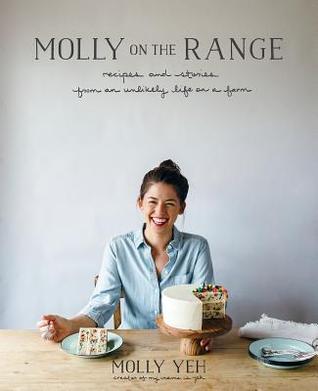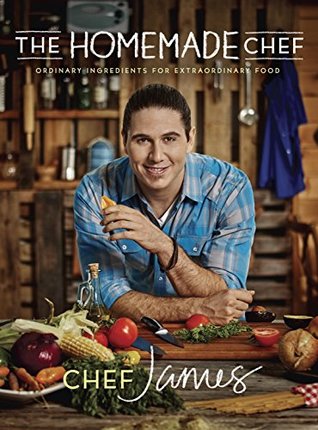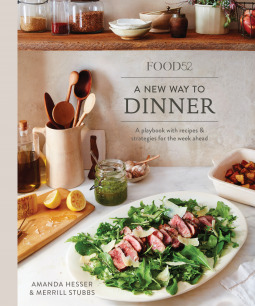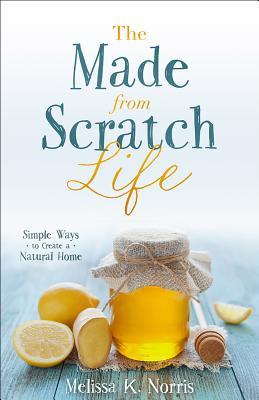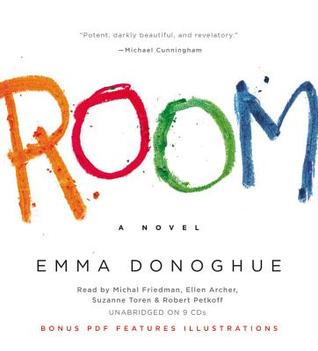The Memory Weaver by Jane Kirkpatrick
I loved A Light in the Wilderness by Kirkpatrick, so I was really looking forward to reading this one. I was pretty disappointed by The Memory Weaver. It follows Eliza Spalding who is "the first white child to live born west of the Shining Mountains." Her parents are missionaries to the Nez Perce Indians and when Eliza is ten years old she is captured and held captive for over 30 days by Cayuse Indians during a massacre. That event forever changed Eliza's life. The book starts when Eliza is thirteen and has recently lost her mother. She is trying to figure out how to shape her life after the massacre and aftermath, as well as, losing her mother and trying to help care for her younger siblings. While the story is based on true events, I felt like Eliza's character was kind of flat. I just didn't connect with her like I did with Letitia in A Light in the Wilderness. I wouldn't recommend this one.
The Made from Scratch Life by Melissa Norris
This was a really quick read that goes over some basic areas where you can create a more "made-from-scratch" life. It's broken down into 8 chapters that each deal with a specific area - growing food, preserving food, cooking, cleaning, etc. I liked how she divided up the book and I liked that each chapter started with a personal story. There are also lots of recipes both for food and for homemade cleaning products or gifts. The author is a Christian so that shapes her views and how she lives her life. My only complaint was that sometimes her parallels between homesteading and Christianity were a little heavy handed. I appreciate and agree with her, but it just seemed a little forced at times. Overall, I did like the book and Norris definitely has a LOT of great, easy to incorporate tips on doing more things the "made-from-scratch" way.
Room by Emma Donoghue (Books & Banter book club)
First time I read this book Dec. 30 - Jan. 1 2011.
Re-read for Evening Edition book club March 2012.
Re-reading this book it was just as good as the first time I read it. The only difference was this time I already knew how they escaped from Old Nick. I really think Donoghue writing the book from Jack's point of view was just genius. It is a whole different spin on this situation and it would have been a much darker book if it was from Ma's point of view. I think this will spark some good discussion at book club!
Re-reading again for Books & Banter book club Oct. 2016.
I have enjoyed this book just as much reading it for the third time. It's a really fast read and now after reading it again I might go ahead and watch the movie to see how it compares. It's even more interesting to read now after stories like Jaycee Dugard and the Cleveland three were found after years in captivity and also had children in captivity. I still really like it being told from Jack's perspective. We'll see how this book club likes it.
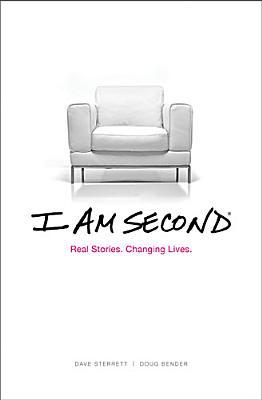
I Am Second by Doug Bender and Dave Sterrett
I wasn't familiar with the I Am Second movement before reading this book, but now I will definitely check out some of the videos. The book is a really quick read with most of the stories only a few pages long. There were some celebrities and familiar faces, but mostly just "normal" people who have struggled with things millions of people struggle with - addiction, infidelity, overeating, suicidal thoughts, etc. But, all these people at their lowest point reached out to God and felt Him respond and that was what allowed them to turn their lives around. This is one of those books that I would have probably never read if it wasn't for a book club, but it's definitely worth reading.
Falling by Jane Green
Emma never felt like she fit into upper-crust British society, but she followed her family's plans and worked in finance. When she had the chance to come to New York she feels like this is a chance to start over. But the high stress financial world isn't her dream either so she saves up as much as she can and moves to Westport, Connecticut to start a new, lower stress life. When she moves into a rental house she almost immediately starts falling for her landlord, a single father named Dominic and his son Jesse. Soon they are living like a family and everything is pointing toward a great future. Then the unthinkable happens and everything Emma dreamed about is threatened. Will Emma stay and fight for her future or will her dreams be destroyed?
I love Jane Green and I read that this was kind of a fictional account of how she met her current husband. But something just seemed off to me. There were a few weird sections of self-doubt that just seemed to not fit at all and were very awkward. While I didn't see the twist at the end coming, the very end seems like a HUGE stretch. Overall, it was just kind of weird. It didn't read like a falling in love story, but more like Emma constantly worrying about this relationship and whether they're moving too fast. Not Jane Green's best in my opinion.
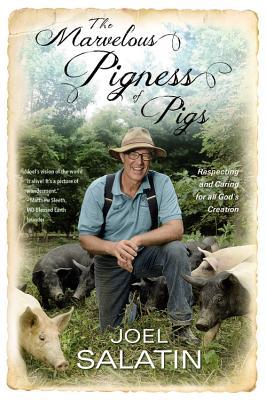
The Marvelous Pigness of Pigs by Joel Salatin
Joel Salatin is AMAZING! He is so incredibly articulate and if you ever have the opportunity to hear him speak in person - GO! In this book Joel "comes out" as a Christian, although I doubt that's really been a secret, and shows how Biblical principles can apply to food and farming. I had the opportunity to hear Joel speak at Duke University a few years ago at a food and faith conference (I wish I could have gone to the whole conference) and there was a lot of what he spoke about at that conference in this book. He explains that this book is more geared toward Christians, but obviously it's open to anyone. I don't think anyone who hears Joel speak or reads is books can be unchanged. Each chapter he has two opposite terms and explores those specific terms/issues in that chapter both in the matter of Christian faith and how it can be played out in food and farming. I will say as both a Christian and a proponent of Joel's way of eating/growing food/supporting my local farmers it was a convicting book - you can always do more and better in everything. I would highly recommend this one to anyone!
Some quotes I really liked:
"It dawned on me that the biblical narrow way that leads to truth and the broad way that leads to destruction are not just spiritual: they're all-encompassing." (p. 7)
"As if pigs are no more special than extruded plastic dolls or polyethylene pipe fittings. I would suggest that a culture that views its pigs as just mechanical objects to be reprogrammed and manipulated will view its citizens the same way, and ultimately God the same way." (p. 20)
"We're the first culture in the world that routinely eats things that have never lived. In spiritual parlance, we're ingesting things that are an abomination to our bodies - and then requesting prayer for the ailments that result." (p. 29)
"Our modern techno-sophisticated culture has absolutely abandoned domestic culinary arts. An integrity food system requires that people using it be informed through participation. When people abdicate kitchen and home-centricity in food preparation, processing, packaging, and preserving, they withdraw accountability. The more people are ignorant about an issue, the easier it is for unscrupulous participants to succeed." (p. 80)
"At sustainable agriculture conferences, most of the workshops are positive how-tos. I almost never hear much discussion about sickness and disease. The overriding desire is how to work with nature as a benevolent friend. This is completely opposite of the theme at industrial agriculture conferences - the kind put on by mainstream agribusiness. Nearly all the discussions center around diseases and sicknesses. The overriding desire is how to beat nature, how to win, as if nature is the enemy that must be subjugated like a military conquest." (p. 89)
"I know segregation is a strong word, but I use it on purpose in order to capture the degree of separation in America's current food and farming system...Perhaps the most segregated thinking of our day rears its ugly head toward the farm sector specifically, and the food sector generally. What happened to the Jeffersonian intellectual agrarian? It's been replaced by a nearly universal notion that smart, white, creative people don't get their hands dirty. While this applies more egregiously to farming, I see it in virtually all of the trades - plumbers, electricians, masons, carpenters, mechanics, welders. You name it, smart white kids aren't supposed to do those things." (p. 106)
"Why are many state governments passing laws criminalizing picture-taking at industrial farms? Because seeing the ugliness incriminates the system." (p. 116)
"The whole idea of pornography, which of course the Christian community universally condemns, is instant and expedient gratification of a sacred act sanctified by marriage. Where is the Christian who dares to identify the pornographic food system that revels in death-inducing, sickness-encouraging, and creation-destroying orgies of self-indulgence? Strong language? Have you walked into a confinement factory chicken house lately? How about a confinement hog factory? Just like pornography disrespects and cheapens God-given and -sanctioned specialness of sex, factory-farmed hog houses disrespect and cheapen the God-sculpted specialness of pigs." (p. 133)
"Folks, a food system that pollutes the neighbor's land, buildings, and people is not a neighbor-friendly system and therefore not a biblical system. Let's call it what it is: wrong." (p. 180)
"For decades the USDA romanced farmers to freebie dinners in order to teach them how to feed dead cows to cows. Because it violated the most fundamental herbivoreness of herbivores, it eventually created mad cow disease. At least, that's the official belief. Cows are herbivores, and herbivores in nature do not eat dead cows, chicken manure, grain, or fermented forage. A host of regulations and government agencies now surround combating this disease that never would have occurred had we simply followed God's template. Virtually all of our diseases reflect a departure from God's patterns." (p. 246)

Come Away With Me by Karma Brown
Tegan has everything she always dreamed of - she is newly married to the love of her life Gabe and is pregnant with a baby boy. But one night on the way to a Christmas party a patch of black ice and the subsequent car accident change everything. Tegan is drowning in grief, but is also angry at Gabe who was driving the night of the accident. After a few months Gabe reminds Tegan of their Jar of Spontaneity, a collection of trips and wish list things they wanted to do together in the future. Gabe hopes that if they can do a few of these trips it will help Tegan create some new, happy memories. While traveling to Thailand, Italy, and Hawaii Tegan does slowly start to feel better, but that is also where a huge plot twist comes in that changes the whole dynamic of the story.
Definitely a tear-jerker at times, and I didn't see the plot twist coming at all. While Tegan is dealing with enormous grief, there is only so many pages you can take of constant feeling sick and wanting to stay in bed - there were times when the story definitely dragged. And while the plot twist definitely changed things, it came so close to the end that it almost seemed an afterthought. Overall, it was good, but not great.

The Forgetting Time by Sharon Guskin
Janie knew her son Noah was precocious and often difficult, but she just assumes it's because he's only 4 years old. But when his behavior gets worse and he is kicked out of preschool, she knows something has to be done. When she stumbles upon Jerome Anderson's work on children who remember past lives, she is shocked at the similarities between his work and what's going on with her son. Dr. Anderson is struggling after receiving a deadly diagnosis, but when he is contacted by Janie he can't help but be intrigued. Can Dr. Anderson figure out what's going on with Noah? Will this help or hurt Noah?
This is a unique and fascinating story that quickly pulls you in. Whether you believe in the idea of reincarnation or not (I don't), it's still a great story about love and loss and how some things will never be explained by science. This is a FANTASTIC book and since it's the author's first, I can't wait to see what she comes out with in the future.

Elephant Company by Vicki Constantine Croke (Evening Edition book club)
This is one of those books that I would have probably never read if not for book club, but I'm so glad I did! James Williams signed up to work for the Bombay Burmah Trading Corporation, a teak logging company, after WWI because he wanted "adventure." Williams would certainly get adventure living in the Burmese jungle and working with elephants. His job was to take care of all the elephants working for the teak company to make sure they were healthy and physically able to work. He was part manager and part elephant vet. He immediately bonded with the elephants and became incredibly skilled in their care. After finding out how adult elephants were captured and "kheddared," he worked to find a new way to raise working elephants with the calves born to working elephants - a new training school for elephants that was much less barbaric. When WWII started Williams played a huge role in using his working elephants for the Allied war effort. He put his own life in danger to help the elephants and transport them (and many refugees) to safety after Japan invaded Burma. He is a pioneer in many ways and his story is amazing. Definitely a great book about a fascinating man and the elephants he loved.
Some quotes I really liked:
[When a mother elephant was blinded] "When the mother and calf were led away Williams noticed something extraordinary. 'I saw the calf back his hindquarters toward his mother's head,' Williams wrote. 'When she felt him, she raised her trunk and rested it on the calf's back; and in this way they moved about the clearing. It was like a little boy holding his blind mother's hand and steering her down the street.'" (p. 110)
"Williams made his way through danger zones with the help of his network of informants - the villagers who were the eyes and ears of the forest. He received astonishingly accurate and swift intelligence on the movement of the enemy...General Slim himself was amazed by the loyalty shown to Williams. After all, his men and their families were civilians and not subject to military law or discipline. They could do as they pleased. Slim said, 'That they stayed, in spite of hardship, danger and separation from their homes - with at one time what seemed like small prospect of ever returning to them - was the measure of Elephant Bill's leadership and of their trust in him.'" (p. 232-3)
"One by one then, all fifty-two of the other [elephants] completed the ascent. Not one fell or refused to climb. Williams, the man who thought elephants were capable of anything, was humbled by their achievement. It was a wonder. 'I learned more in that one day about what elephants could be got to do than I had in twenty-four years,' he would write." (p. 275)
"Williams grieved Bandoola as he would a brother, and he buried him as a war hero. Somewhere on the border of Burma and India is a monument. Carved on a giant teak tree, 'preserved for humanity,' are the words BANDOOLA BORN 1897, KILLED IN ACTION 1944." (p. 288)
